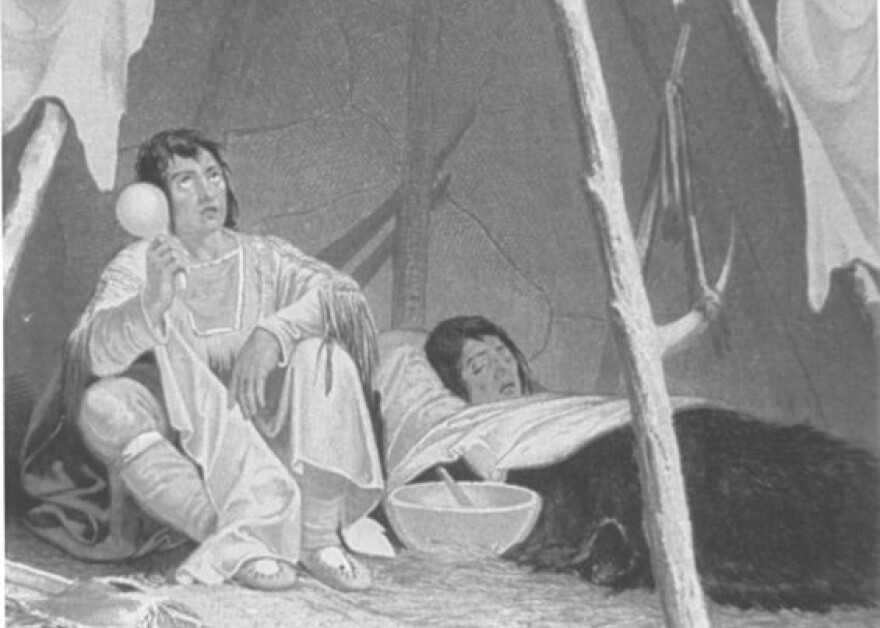We recently covered how the Oneida Nation Wisconsin is turning to indigenous agricultural practices to put food on the table during the coronavirus pandemic. But how did that resilient, self-reliant attitude become such a hallmark of American Indian life?
While broken treaties and being forced onto reservations may conjure memories of early American history, the reality is many of these things are still affecting tribes to this day. Epidemics are also rooted in the history of tribes, like the Oneida Nation of Wisconsin, as smallpox destroyed communities when Europeans came to North America.
Heather Brugel is an indigenous historian and writer who runs cultural affairs for the Stockbridge–Munsee Band of the Mohican Indians in Wisconsin. She discusses some of the pretexts — viral and otherwise — for how America’s first nations live today.
"[Indigenous people] didn't have those immunities built up to the diseases that were brought over," says Brugel. "It struck New England really hard in 1633 and much of the New England Indians were virtually wiped out. They went from a population of around 16,000, if you combine the Mohegan and Pequea, down to 3,000."
While those death rates aren't expected from the coronavirus, tribes like the Navajo Nation have seen incredibly high infection rates.
For sovereign Indian nations, this brings up the question of how they interact with state and federal governments, whose relationship is built on centuries of failing and mistrust from these governments. Brugel says lawmakers still often fail to consider Indian law and history when interacting with the tribal nations, which can lead to the state and federal government "overstepping their bounds."
Despite all of this, Brugel says she sees "communities come together to help each other, to help other native communities." She says different native groups from Wisconsin are making masks to send to the Navajo Nation. In the Stockbridge–Munsee Community, she says people are bringing bags full of snacks and essential items to those who can't leave their homes.
Another community that has stepped up is the Irish, starting a Go Fund Me campaign that's raised almost $4 million. This connection goes back when tribes sent money to Ireland to help people during the Irish Potato Famine.
As states begin to reopen, so will indigenous nations. The Oneida Nation announced that they will be reopening their casino on May 26. Social distancing, protective equipment, and other precautions will be enforced.
Have a question you'd like WUWM to answer? Submit your query below.
_






